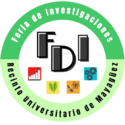Participating date: April 6, 2022
Schedule: 11:30 AM -11:50 AM /
3:00 PM -3:30 PM
General Description:
Bacillus thuringiensis is a typical soil bacilli, distinguished from the closely related species B. cereus and B. anthracis. Like these two species, Bacillus thuringiensis detect and adapt to changes in their environment such as lack of nutrients by producing specialized structures. Therefore, an extreme survival strategy employed by these gram-positive bacteria is the formation of endospores. This allows the bacterium to produce a highly resistant structure to preserve its genetic material in times of extreme stress such as desiccation, starvation, or the presence of oxidative stress. Endospores can also survive environmental assaults that would normally kill bacteria such as elevated temperature, high UV irradiation, chemical damage, and the presence of degradative enzymes. The objective of the research is to the production and purification B. thuringiensis endospores. Methods to achieve this will be done by exposing the bacteria to different growth conditions and culture media to promote its formation. The best endospore’s purification procedure will be determined by comparing various methods of purification and scoring the quantity and viability of the isolated endospores. The presence of these resistance structures will be detected by microscopic observation after staining the samples using the Schaeffer-Fulton protocol. The quantification will be achieved using a counting chamber and its viability by streaking the samples on plates with enriched culture media. The final endospores samples will be used to obtain specific spectral signatures.
Interested Majors
Biology
Industrial Microbiology
Industrial Biotechnology
Chemistry
Level of Education
Undergraduate
Professor/Advisor
Dr. Carlos Rios Velazquez
Schedule
11:30 AM -11:50 AM
3:00 PM – 3:30 PM
Google Meet Link
CLICK HERE TO JOIN
[pvcp_1]
